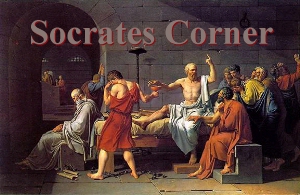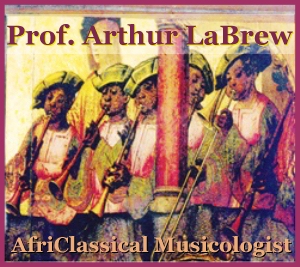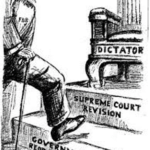Judge Richard Posner on Law and Literature, Part 1
By Ellis Washington, J.D.
6 September 2016
Revised and Enlarged Edition (March 15, 1998) Published by Harvard University Press
| About the Author—Professor Ellis Washington, J.D.—I went to Harvard Law School with future POTUS Barack Hussein Obama for 1 year (1988-89), but I took the opposite path in Life—New World Order, Communism, Treason, Pedophilia & Satanic Ritual Abuse vs. Christianity, Conservatism, Protecting the Children & TRUMPism. I repeatedly refused to take the “Satan OATH” which is why I’ve been blacklisted for 30+ years—for my entire legal and academic career, yet I Fight on! Why?—For Harvard’s original 1692 motto—Veritas pro Christo et Ecclesia {= Truth for Christ and the Church}.
To escape the 150-Year Rothschild Chattel Slavery systems (e.g., Birth certificates, Social Security numbers bought, sold & traded on Wall Street) & Rothschild Debt Slavery systems (e.g., IRS, Income Taxes, fiat/counterfeit currency based on NOTHING, printed to fund false flag wars) of the Rothschild Khazarian Mafia Matrix (1871-2021), read and share the Truth of my Critical Thinking blog with the Youth that’s nearing 20 Million views @ EllisWashingtonReport.com & on Facebook — #JesusIsLord #DCActof1871 |
Obedience to legal rules to which we would have consented relieves us of the task of evaluating the morality and prudence of our actions.
~ Professor Robin West, Dean—Georgetown University Law Center
Although the writers we value have often put law into their writings, it does not follow that those writings are about law in any interesting way that a lawyer might be able to elucidate.
~ Judge Richard A. Posner, Lecturer – Univ. of Chicago School of Law
Richard Posner and the Development of the Law and Literature Movement
Professor Posner, in addition to being the former Chief Justice on the Sixth Circuit Court of Appeals (Chicago), has for several decades also served as a Lecturer at the University of Chicago Law School. Posner has the deserved reputation as one of the most prolific, scholarly and intellectual jurists in American law. For over 40 years Professor Posner has been in the forefront of many burgeoning and innovative movements in the law, particularly the Law and Economics movement and the Law and Literature movement which I will discuss in this paper.
In the Preface to the third edition of his classic text, Law and Literature, Posner opens with this evocative paragraph:
Law and Literature are related to each other in interesting ways. Innumerable literary works, many of great distinction, take law for a them, and feature a trial (Eumenides, The Merchant of Venice, Billy Budd, The Trial, The Stranger), abuse of judicial authority (Measure for Measure), conflicting jurisprudential theories (Antigone, King Lear), the practice of law (Bleak House), crime and punishment (Paradise Lost, Oliver Twist), the relation of law to vengeance (Oresteia, Hamlet), even specific field of law, such as contract (Marlowe’s Doctor Faustus), inheritance (Felix Holt, The Woman in White), and intellectual property (William Gaddis’s A Frolic of His Own).
Therefore, in this article I thought it prudent and instructive to take this paragraph above, divide it into sections, cite to literary essays I had written on the works above as a comparative analysis with literary examination of these classical texts by Professor Posner which he does in his own unique and inimitable style.
Literature that Features a Trial
{Eumenides, The Merchant of Venice, Billy Budd, The Trial, The Stranger}
In the ancient Greek literary work of The Furies (euphemistically called Eumenides—the “kindly ones”), the great ancient Greek playwright Aeschylus recounts the end of the Trojan War according to his trilogy of dramatic tragedies called Oresteia. Posner sets the legal cause of action in this manner:
“When Agamemnon returns at long last from the Trojan War, Aegisthus and Clytemnestra kill him…. His son, Orestes kills them. Pursued by supernatural being, the Furies (“Eumenides”) for Orestes himself would be the natural avenger of his mother’s murder were he not the murderer—he is eventually brought to trial in the Court of the Areopagus in Athens, presided over by Athena. He is acquitted of the murder of his mother, and the cycle of vengeance is broken, as there is no avenger of Aegisthus.
Ironically in the 2001 law review article I wrote in response to Professor Posner’s 100th Anniversary Oliver Wendell Holmes Lecture Series at Harvard, Reply to Judge Posner, at the very beginning (pp. 4-5) I also mentioned that most ancient High Court of law in the Western world, the Areopagus as cited by Saint Paul in the Book of Acts—
And they took him, and brought him unto Areopagus [the Athenian Supreme Court], saying, May we know what this new doctrine, whereof thou speakest, is? (For all the Athenians and strangers which were there spent their time in nothing else, but either to tell, or to hear some new thing.) Then Paul stood in the midst of Mars’ hill, and said, Ye men of Athens, I perceive that in all things ye are too superstitious. For as I passed by, and beheld your devotions, I found an altar with this inscription, TO THE UNKNOWN GOD. Whom therefore ye ignorantly worship, him declare I unto you. (Acts. 17:19, 21-23)
I hearkened back to that Supreme Court of antiquity, the Areopagus in Athens as a philosophical predicate and apologetic to Professor Posner that Natural Law (e.g., the integration of legality and morality) was a much better jurisprudence and political philosophy for the founding of our American Republic than his Positive Law or Legal Positivism (e.g., the separation of legality and morality).
Concluding with his analysis of Eumenides, Posner writes,
Eumenides, the last play of the Oresteia, ascribes the founding of the Court of the Areopagus, reputed to be the first formal court in the classical world, to a desire to end the cycle of vengeance—thus making transparent the relation between vengeance and the absence of regular institutions of criminal justice.
This is a very salient point which until I read Posner opus had no idea of the transcendent nature that the Areopagus in the evolution of the history of law by distinguishing from and ascending from the Old Worldview eye for an eye, tooth for a tooth philosophy (lex talionis) for the law of Justice and Equity.
Beginning where Posner starts with Shakespeare’s The Merchant of Venice, (Posner: Law and Literature, 117), Posner pairs his analysis with Hamlet writing, “This is Hamlet—debonair, magnanimous, aristocratic—transcending the system of resentful revenge later criticized by Nietzsche. The same thing happens in The Merchant of Venice, with Shylock the resentful revenger and Bassanio (notably in his choice of the lead casket over the gold or silver) rejecting the accounts-keeping approach. In the Merchant of Venice “the graspers and hoarders lose; the givers gamble and win.”
This passage above is also derivative of many passages in the Bible (a ‘literature’ book in its own right) particularly the passage in ____ where 1 Kings 3:16-28 King Solomon proves his legendary wisdom by taking a baby two women claimed was their child and commanded a literal (and shocking) form of legal equity— And the king said, Divide the living child in two, and give half to the one, and half to the other. (1 Kings 3:25) Why did Solomon attempt such a grotesques form of judgment? Solomon knew (by his faith in God) that only the real (i.e., legal) mother would rather the false mother to have her baby rather than kill it, the false mother said. Here is the passionate dialogue between the two women pleading their case before the judge King Solomon according to the International Standard Version:
The woman whose child was still alive cried out to the king, because her heart yearned for her son. “Oh no, your majesty!” she said. “Give her the living child. Please don’t kill him.” But the other woman said, “Cut him in half! That way, he’ll belong to neither one of us.” (1 Kings 3:26)
A second aphorism from the Bible derivative of Posner’s analysis of The Merchant of Venice affirming where those who do the opposite of the worldly ways are rewarded in this world, is the aphorism found in Matthew’s Gospel 20:16—So the last shall be first, and the first last: for many be called, but few chosen.
New York Times writer Tom Goldstein, in writing about a 1988 Symposium on the Billy Budd story between Professor Richard Weisberg of the Cardozo School Law and Professor Richard Posner, of the University of Chicago Law School, gives this summary of this naval tragedy chronicled in America literature:
In the novel, Billy Budd, a popular sailor, has been impressed into service on a British warship. Soon afterward a petty officer, John Claggart, falsely accuses Billy of being a mutineer. When confronting his accuser, Billy cannot speak. The captain comforts him, saying there is no need to hurry. But Billy strikes Claggart dead with a single blow. The captain convenes a court-martial, whose members are inclined to leniency until the captain intercedes. Within 24 hours, Billy is hanged.
Weisberg’s analysis of Billy Budd, “The professor presented a detailed review of court-martial procedures in effect in the 18th century, when the story took place, and concluded, ‘From the legal point of view, there was no justification of what Vere did.”
Weisberg’s legal analysis of Melville’s’ literary judgement of Billy Budd at the end of the novel was disputed by Judge Richard Posner…. “The judge chided the professor for going beyond the text of the book for his evidence. Melville, he said, was ‘not writing the story for people expected to do legal research.’” According to Professor Posner, Vere was merely fulfilling his obligation. ”We cannot bring a 1980’s view of capital punishment to the story,” Judge Posner said. ”It was utterly routine in the 18th century.”
Moving to writer Franz Kafka’s dystopian literary masterpiece, The Trial, Posner writes, “Law’s aspect as contest provides an analogy to the troubled lives encountered in works of literature, an analogy dramatized in the punning title of Kafka’s novel The Trial, which in English as in German (Der Prozess) means both a legal proceeding and a personal crisis. Law’s aspect as a framework for social peace provides a contrast to those troubled lives.” (Posner, 5-6) Kafka’s The Trial I believe is one of Posner’s most beloved works in reading his book. I think beyond Kafka’s knowledge of law, Posner is drawn to Kafka’s deep psychological probings into the mind and heart of humanity.
In Posner’s examination of French philosopher Albert Camus’s, The Stranger (1942), this work is often compared and contrasted with Kafka’s The Trial (written 1914-15, published 1925). I believe he pairs these twin masterpieces together because both works share a dark, dystopian worldview popularized in works of literary Modernism genre featuring – the absurd, the isolated, the unreachable, the unconventional, and the existential (e.g., “a philosophical theory or approach that emphasizes the existence of the individual person as a free and responsible agent determining their own development through acts of the will.”)
In another passage comparing and contrasting The Stranger with The Trial, Posner wrote, “It does not seem to have been Camus’s purpose to criticize the only type of criminal procedure that he knew anything about, … Kafka’s novel The Trial, we shall see in chapter 4, goes a step beyond The Stranger in basing a guilty verdict on character wholly disjoined from deed—for in The Trial, unlike The Stranger, there is no deed on which guilt could be based. So we see that the law and … (Posner, 63)
“Kafka is often considered an oracular figure, like George Orwell. In the Penal Colony is considered a prophecy of the Nazi concentration camps,” Posner writes, “The Trial a prophecy of the state terror practiced by Hitler and Stalin…” (Posner, 172) Connecting George Orwell’s dystopian novels (most notably 1984 and Animal Farm) to the disjointed and bleak societal landscape of Kafka and how the former works were a contemporary commentary against fascism and socialism States, whereby Kafka’s The Trial was a literary prophecy against the prevailing twin Tyrannies of the early twentieth century—National Socialism (Hitler’s Nazism) and International Socialism (Stalin’s Communist Russia).
Literature and the Abuse of Judicial Authority
{Measure for Measure}
Posner legal analysis of Shakespeare’s Measure for Measure demonstrates “the idea that willingness to condemn a member of one’s own family is the acid test of devotion to justice.” (Posner, 96). Here is a short summary of Shakespeare’s Measure for Measure that I found useful in this review:
Shakespeare’s Measure for Measure centers around the fate of Claudio, who is arrested by Lord Angelo, the temporary leader of Vienna. Angelo is left in charge by the Duke, who pretends to leave town but instead dresses as a friar to observe the goings-on in his absence. Angelo is strict, moralistic, and unwavering in his decision-making; he decides that there is too much freedom in Vienna and takes it upon himself to rid the city of brothels and unlawful sexual activity. Laws against these behaviors and institutions already exist, and Angelo simply decides to enforce them more strictly. Claudio is arrested for impregnating Juliet, his lover, before they were married. Although they were engaged and their sexual intercourse was consensual, Claudio is sentenced to death in order to serve as an example to the other Viennese citizens.
You heard it said that “All politics is local”, however if that is truth, then can it equally be said that ‘All law local’? Shakespeare seems to think so here in his play, Measure for Measure where Posner’s analysis emphasizes the parochial nature of law as connected (almost inseparably) from the location where the trial will be held— “Vienna, where, Measure for Measure is set, is depicted as having very strict law, including the death penalty for fornication. But the laws are not enforced. Although unhappy with this situation—prostitution, adultery, and fornication are. (Posner, 154) In modern times this failure of the law through a failure of inaction reminds me of the hundreds of immigration laws on the book in America, yet Congress and most of the 50 U.S. governors are unwilling or unable to enforce federal and state immigration law; to keep out illegal aliens, many of whom are causing chaos upon society and depleting our welfare safety net.
Judge Richard Posner reading in his Chambers
Literature and Conflicting Jurisprudential Theories
{Antigone, King Lear}
Posner summarizes the legal case of the legendary Greek playwright, Sophocles’ Antigone in this manner—
Antigone, a daughter of Oedipus by his incestuous marriage and therefore a sister of Polynices and Eteocles, defies the decree and buries her dishounored brother. Her action is discovered, and in a brief trial scene in which she asserts the primacy of divine law and Creon the inviolability of his decrees, he condemns her to death for having violated his burial interdiction. Horrible things ensue, including the death of Creon’s wife and his son, who is betrothed to Antigone and decides to die with here. In failing to honor the claims of the gods of the underworld, who insist on proper burial without which the souls of the dead cannot be received into the underworld, Creon has acted with impiety and must be punished. (Posner, 134)
In my Reply to Judge Posner (p. 46), I cited to Sophocles singular allegiance to Natural Law and Natural Rights (integration of legality and morality) chronicled in his Antigone and compared and contrasted that worldview to Jesus violation of the Pharisaical laws for fidelity to God’s law alone. I wrote, “So like the courage of Antigone against the ruler, Creon in Sophocles’ play, Antigone, it can be a sublime gesture to break with the traditions of men, especially when play allegiance to a greater principle or “Higher Law”, which supersedes all else.
The story of Antigone is one of the most sublime examples of Natural Law triumphing over Positive Law or the law of man and is derivative of another Natural Law philosopher and exponent, Thomas Jefferson who wrote, “If tyranny is anything, it is the institution of force and fear to enslave humanity, yet “the rebellion to tyranny, is obedience to God.”
In Posner’s review of Shakespeare’s King Lear, the author places great emphasis on the fact that “Lear is unnatural in his initial rejection of Cordelia, but all too natural in his childish desire to be loved without limits and to enjoy the… Bradley remarked the incessant references in King Lear “to the lower animals and man’s likeness to them.” (Posner, 136) The irony here is unlike Posner’s Positive Law worldview, we see throughout history that the further humanity departs from God Natural Laws the more like animals and beasts he becomes.
Posner later cites, “the normative (moral) ambiguities of nature are at the heart of King Lear,” comparing and contrasting them to “the rival claims of religious and civic duty, fail to achieve the sort of via media attempted by the religion clauses of the First Amendment to the U.S. Constitution.” (Posner, 135)
Literature and the Practice of Law
{Bleak House}
“Dickens made fog the symbol of the Court of Chancery in Bleak House, a novel framed by an interminable equity case finally dismissed when the state that was its subject has been entirely consumed by legal fees and other costs,” according to Posner. (Posner 187) Hearkening back to the Weisberg/Posner debates in the 1980s, the issue then was in regards to how far one can realistically rely upon the literary texts as guidance in a modern court of law? Professor Weisberg’s view would be more in line with a Literalist view that the literary text is preeminent in guiding lawyers and judges vs. Posner’s Realist view which places little faith in literary texts under a law paradigm, and greater reliance in the realism of the Rule of law in guiding lawyers and judges.
On this conflicting Literalist/Realist dualism in Dicken’s Bleak House (1853), Posner wrote, “Bleak House is a powerful, if belated, satire on a seriously flawed, though already reforming, legal institution. But someone who wanted to learn about the English chancery court before it was reformed would not turn to Bleak House.” (Posner, 190). Posner later adds to his level of Realism against relying on Dicken’s text for legal guidance and instruction, “Bleak House is particularly rich in unforgettable portraits of repellent lawyers—notably Tulkinghorn and the clerk Guppy—and also of the court buffs who follow litigation, their own or others, with paranoid intensity (for example, Miss Flite) …” (Posner, 188)
This passage above thus is demonstrative of Posner’s Legal Realism view that reliance upon literary texts by lawyers and judges (Literalism or law as it ought to be) has many logical and experiential limits that the law as it is will ameliorate. *N.B.: Posner’s Realism here is related to his literature analysis only and his not related to the following concluding paragraph.
This 2002 book was published originally as Posner’s 1997 Oliver Wendell Holmes Lecture at Harvard Law School celebrating the 100th anniversary of Justice Holmes’ iconic law review article, The Path of Law. My law review article Reply to Judge Posner… (2001) was a comprehensive critique of Professor Posner’s original 1999 Harvard Law Review article based on his original 1997 Harvard lecture.
On a meta-level of legal analysis regarding the history of American Jurisprudence Democrat-appointed or Socialist/Activist judges follow a Positive Law jurisprudence based on the worldview Law as it is. This Darwinian Evolution-Atheism legal philosophy his essentially based on Darwin’s discredited and biologically pitiless hypothesis of survival of the fittest. Republican-appointed constitutionalists judges (generally speaking) up until the overthrow of the Supreme Court by FDR in 1937 (aka ‘a switch in time saved nine’) followed a Natural Law/Natural rights jurisprudence based on Law as it ought to be. Based on Natural Law which is the original intent of the constitutional Framers. Professor Posner and about 99% of legal scholars in Academia follow the former Positive Law philosophy; I and many conservative legal scholars and historians follow the latter Natural Law philosophy.
*N.B.: Part 2 of this essay will be posted on my blog, EllisWashingtonReport.com by Sept. 8th.
Works Cited
- Richard A. Posner, Law and Literature (Third Ed., 2009).
- Ellis Washington, Reply to Judge Richard A. Posner on the Inseparability of Law and Morality, 3 Rutgers Journal of Law and Religion, 1-130 (2001).
- Tom Goldstein, The Law; Once Again, ‘Billy Budd’ Is Standing, New York Times, http://www.nytimes.com/1988/06/10/us/the-law-once-again-billy-budd-is-standing-trial.html (Posted June 10, 1988).
- Wikiquotes, Quotes from Oliver Twist, https://en.wikiquote.org/wiki/Oliver_Twist (last visited Aug. 25, 2016).
- Ellis Washington, Social Darwinism in Nazi Family and Inheritance Law, 13 Rutgers Journal of Law and Religion, 173-225 (2011).
- Ellis Washington, The Shadow Power Behind the Supreme Court, WND.com, http://www.wnd.com/2012/03/the-shadow-power-behind-the-supreme-court/ (posted March 9, 2012).
- William Shakespeare, Spark Notes, Measure for Measure, http://www.sparknotes.com/shakespeare/measure/summary.html (last visited Sept. 6, 2016).
Category: Commentary

















